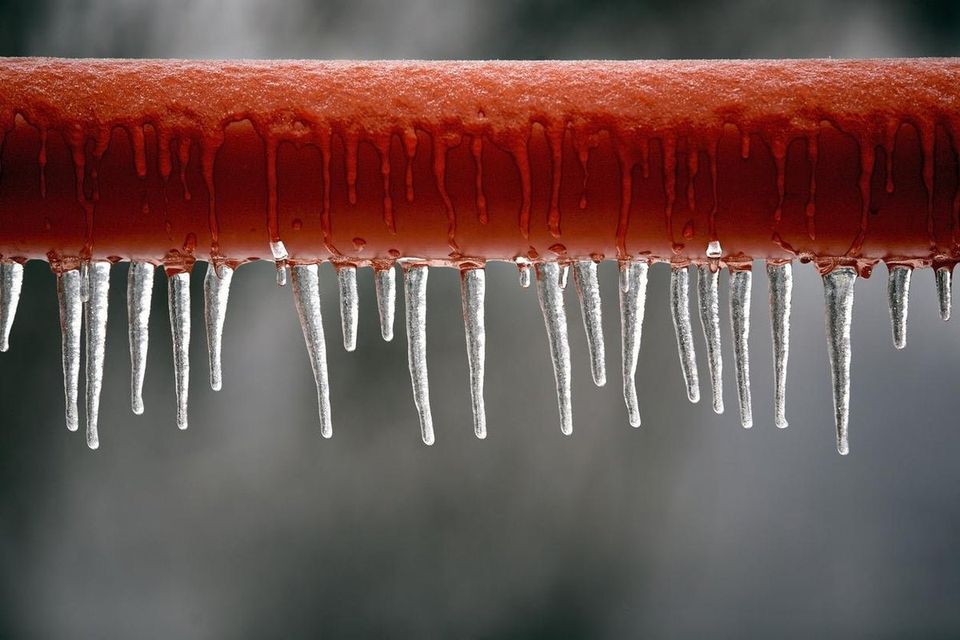How to Avoid Frozen Pipes in Winter: Expert Tips
How to Avoid Frozen Pipes in Winter: Expert Tips
Blog Article
The writer is making several great pointers on the subject of Helpful Tips to Prevent Frozen Pipes this Winter as a whole in the content directly below.

Winter can wreak havoc on your pipes, particularly by freezing pipes. Here's how to prevent it from happening and what to do if it does.
Introduction
As temperatures decline, the threat of icy pipelines boosts, potentially resulting in costly repairs and water damages. Recognizing exactly how to prevent icy pipes is essential for homeowners in cool climates.
Avoidance Tips
Protecting vulnerable pipelines
Wrap pipelines in insulation sleeves or use warmth tape to shield them from freezing temperatures. Concentrate on pipes in unheated or external areas of the home.
Heating strategies
Keep indoor rooms effectively heated up, specifically areas with plumbing. Open up cabinet doors to enable cozy air to flow around pipelines under sinks.
How to determine frozen pipes
Search for reduced water circulation from taps, uncommon smells or sounds from pipelines, and noticeable frost on exposed pipes.
Long-Term Solutions
Structural changes
Take into consideration rerouting pipelines far from exterior walls or unheated areas. Add extra insulation to attic rooms, cellars, and crawl spaces.
Upgrading insulation
Invest in premium insulation for pipelines, attic rooms, and walls. Proper insulation aids maintain regular temperatures and decreases the risk of frozen pipes.
Shielding Outside Pipes
Garden tubes and outside taps
Disconnect and drain pipes yard hoses before winter months. Install frost-proof faucets or cover exterior faucets with protected caps.
Recognizing Frozen Pipes
What creates pipelines to freeze?
Pipes ice up when revealed to temperatures below 32 ° F (0 ° C) for prolonged durations. As water inside the pipelines ices up, it increases, putting pressure on the pipeline wall surfaces and potentially causing them to burst.
Risks and damages
Frozen pipes can result in water system interruptions, residential or commercial property damage, and expensive repair work. Burst pipes can flooding homes and create considerable architectural damage.
Signs of Frozen Pipes
Recognizing frozen pipes early can stop them from rupturing.
What to Do If Your Pipes Freeze
Immediate activities to take
If you presume frozen pipelines, keep faucets open to ease pressure as the ice thaws. Make use of a hairdryer or towels soaked in hot water to thaw pipes gradually.
Conclusion
Avoiding frozen pipes needs positive steps and fast feedbacks. By understanding the causes, indicators, and safety nets, house owners can protect their plumbing during winter.
Helpful Tips to Prevent Frozen Pipes this Winter
UNDERSTANDING THE BASICS: WHY PIPES FREEZE AND WHY IT’S A PROBLEM
Water freezing inside pipes is common during the winter months, but understanding why pipes freeze, and the potential problems it can cause is crucial in preventing such incidents. This section will delve into the basics of why pipes freeze and the associated problems that may arise.
THE SCIENCE BEHIND FROZEN PIPES
When water reaches freezing temperatures, it undergoes a physical transformation and solidifies into ice. This expansion of water as it freezes is the primary reason pipes can burst. As the water inside the pipe freezes, it expands, creating immense pressure on the walls. If the pressure becomes too great, the pipe can crack or rupture, leading to leaks and water damage.
FACTORS THAT CONTRIBUTE TO PIPE FREEZING
Low Temperatures: Extremely cold weather, especially below freezing, increases the risk of pipes freezing. Uninsulated or Poorly Insulated Pipes: Pipes located in unheated areas, such as basements, crawl spaces, or attics, are more prone to freezing. Insufficient insulation or lack of insulation altogether exacerbates the problem. Exterior Wall Exposure: Pipes running along exterior walls are susceptible to freezing as they encounter colder temperatures outside. Lack of Heating or Temperature Regulation: Inadequate heating or inconsistent temperature control in your home can contribute to frozen pipes. PROBLEMS CAUSED BY FROZEN PIPES
- Pipe Bursting: As mentioned earlier, the expansion of water as it freezes can cause pipes to burst, resulting in significant water damage.
- Water Damage: When pipes burst, it can lead to flooding and water damage to your property, including walls, ceilings, flooring, and personal belongings.
- Structural Damage: Prolonged exposure to water from burst pipes can compromise the structural integrity of your home, leading to costly repairs.
- Mold and Mildew Growth: Excess moisture from water damage can create a favorable environment for mold and mildew growth, posing health risks to occupants.
- Disrupted Water Supply: Frozen pipes can also result in a complete or partial loss of water supply until the issue is resolved.
WHY CERTAIN PIPES ARE MORE PRONE TO FREEZING
- Location: Pipes located in unheated or poorly insulated areas, such as basements, crawl spaces, attics, or exterior walls, are at higher risk of freezing.
- Exterior Pipes: Outdoor pipes, such as those used for irrigation or exposed plumbing, are particularly vulnerable to freezing as they are directly exposed to the elements.
- Supply Lines: Pipes that carry water from the main water supply into your home, including the main water line, are critical to protect as freezing in these lines can affect your entire plumbing system.
- Underground Pipes: Pipes buried underground, such as those connected to sprinkler systems or outdoor faucets, can be susceptible to freezing if not properly insulated.
https://busybusy.com/blog/helpful-tips-to-prevent-frozen-pipes-this-winter/

We were introduced to that write-up on Prevent Frozen Pipes through a pal on a different site. Sharing is good. Helping others is fun. Thank you so much for going through it.
Get Your Estimate Now Report this page